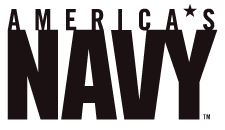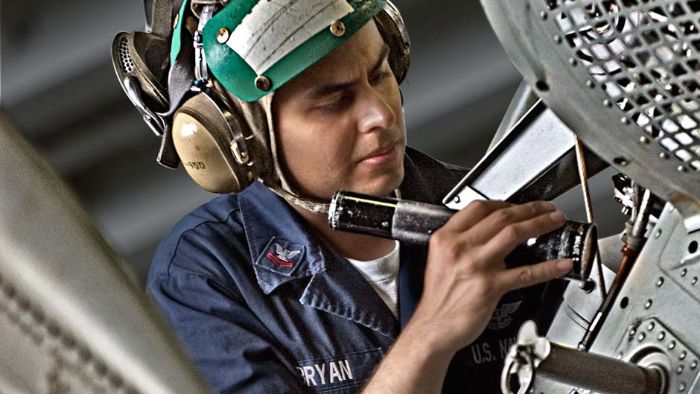Work on everything from motors to missile systems Mechanical & Industrial Technology Jobs
Overhauling engines. Repairing mechanical evaporators that turn seawater into freshwater. Troubleshooting systems on an F/A-18 Hornet. Without the skills of those working in the mechanical and industrial technology field, the Navy’s technologically advanced machinery and equipment would be little more than a mass of wires and metal.
Job Description
Whenever there’s a machine, vehicle or system in need of setup or repair in the Navy, you’ll be the one called upon to keep everything safe and operational. The various occupational specialists build, maintain, inspect and operate everything from power production facilities to electrical distribution systems. All in order to keep America’s Navy on the move and functioning at the highest level.
No degree is required to work in this community, but the training and hands-on experience you’ll receive is an education in its own right.
Specific Responsibilities
Whether welding a ship component, servicing a submarine weapons system, or performing chemical and quality assurance tests on water and oil, your work will be critical to the big picture.
In any of a variety of specific roles, you may be expected to:
- Test, install, and maintain a wide range of aircraft instruments and electrical equipment, including generators, motors, and lighting systems
- Maintain aircraft fuselages, wings, fixed and movable surfaces, airfoils, regular seats, wheels and tires, and controls and mechanisms
- Repair and maintain heavy construction and automotive equipment
- Install, operate, and repair heating, piping, ventilation and air-conditioning systems
- Operate and maintain hydraulic power plants, steam generators, hoists and cylinders, oxygen generators, atmosphere control equipment, refrigeration systems, diesel engines, and pressurized air systems
Work Environment
Whether at sea or on shore, you will be repairing everything from Navy helicopters to submarines, surface ships to landing craft. You could be working at bases, ports of call, critical disaster areas and development areas, with land-based aircraft squadron or on board aircraft carriers, indoors or outdoors, in a shop environment or in office surroundings.
Training, Education & Advancement
Training received in this field often translates to credit hours toward a college degree. You will also have the chance to continue your education with the help of the Navy through opportunities like the Navy College Program and Tuition Assistance.
Advanced technical and operational training is available in this field during later stages of career development. Some jobs within this field offer accelerated promotions to higher pay grades.
For those interested in pursuing a mechanical and industrial technology career within the prestigious Naval Nuclear community, learn more about opportunities in the field of nuclear operations.
Qualifications
A four-year degree is not required to become a member of the Navy mechanical and industrial technology community.
After the Navy
It’s inevitable that anything with gears, electronics, wiring or other parts will eventually break down. The specialized technology training you’ll receive while in the Navy will arm you with the skills, knowledge and hands-on experience needed to prepare you for civilian careers, such as:
- Airframe mechanic
- Power plant mechanic
- Sheet metal worker
- Aircraft mechanic
- Diesel mechanic
- Refrigeration mechanic
- Electronics mechanic
- Hydroelectric machinery mechanic
- Electric motor repairer
- Locksmith
Consider Your Service Options.
There are different ways that you can commit to serve in America's Navy. Besides full-time opportunities in Active Duty, part-time Reserve positions are also available in this career area.
 America's Navy
America's Navy

